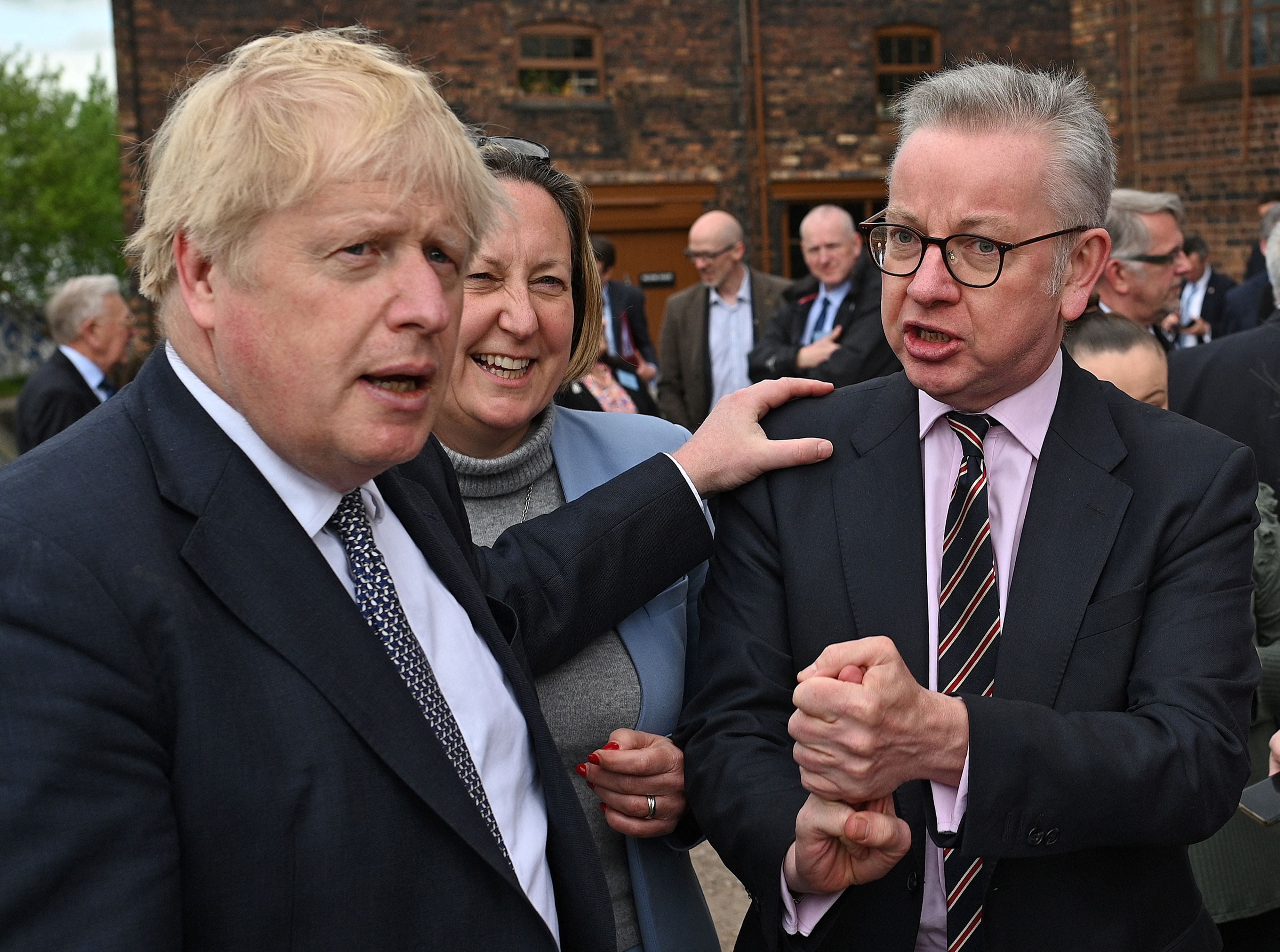Boris Johnson’s flagship levelling up department left with only one paid minister after Gove sacked
Three resignations and a sacking leave lone MP on payroll
The ministry created to carry out Boris Johnson’s promise to level up Britain has been hollowed out over the course of a tumultuous few days in Westminster.
Following a string of resignations and the sacking of Michael Gove, the head of the department, only one paid minister remained at the Department for Levelling Up, Housing and Communities on Wednesday night.
Ministers Kemi Badenoch, Neil O’Brien and Stuart Andrew all left on Wednesday afternoon, while Mr Gove remained until he was dismissed by Mr Johnson shortly before 10pm, having been first among cabinet colleagues to tell the prime minister his time was up.
Eddie Hughes MP remains the parliamentary under secretary of state.
By the end of Wednesday, Mr Johnson had sacked only Mr Gove, while 44 Tory MPs had resigned from his government. Simon Hart, the Welsh secretary, left after the prime minister refused to listen to colleagues’ advice to stand down. Mr Hart was followed soon by Ed Argar, a health minister.
In a late-night interview Suella Braverman, the attorney general, said “the balance has tipped now in favour of saying that the prime minister – it pains me to say it – but it’s time to go.’’
After so many resignations, several government departments were short on ministerial staff, though few looked in as bad shape as the levelling up department. Nor did they carry the symbolic weight of the prime minister’s flagship ministry.
The levelling up department was formed in September when Mr Johnson decided to merge the brief of the Ministry for Housing, Communities and Local Government with that of his much-touted but ill defined policy for improving the fortunes of so-called “left behind” areas of the UK.

Mr Gove was appointed secretary of the department after a stint as Cabinet Office secretary where he was tasked with devising clear objectives for “levelling up”.
The prime minister and Mr Gove had a chequered past. They knew one another as journalists before they both became Tory MPs (Mr Johnson in 2001, Mr Gove in 2005) of the socially liberal wave led to prominence in the mid-2000s by David Cameron.
The pair went on to work closely together leading the Vote Leave campaign in favour of Brexit but their relationship suffered greatly when Mr Gove stood against Mr Johnson in the 2016 leadership contest, having until that point been running the other man’s campaign.
They again ran against one another in the 2019 Tory leadership that saw Mr Johnson made prime minister. The victor kept his old friend close, appointing him as his effective deputy before giving him the levelling up brief, which he had pitched as the defining policy of his premiership.
Join our commenting forum
Join thought-provoking conversations, follow other Independent readers and see their replies
Comments